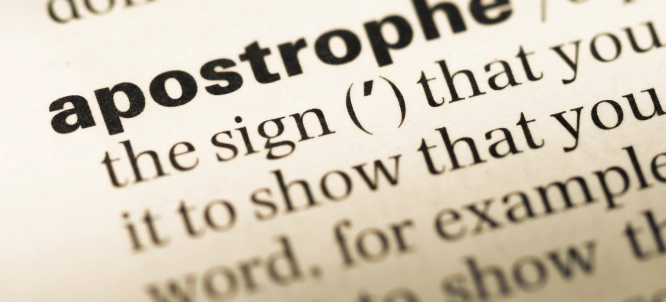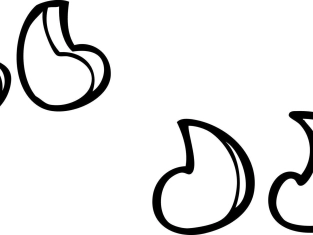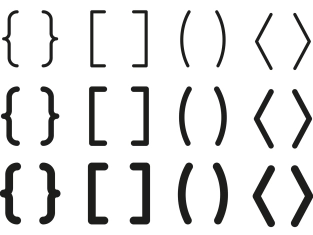by PushtoLearn
How to Use Apostrophes
Table of Contents
What exactly is an apostrophe?
An apostrophe ( ’ ) is a punctuation mark that either replaces omitted characters (can’t = cannot) or attaches to a noun to signal ownership (Alex’s laptop). When neither of those conditions applies, the safest default is: don’t use one.
Apostrophes for possession
Singular nouns
Add ’s even if the word already ends in s: James’s bike, the boss’s report. The Chicago Manual of Style prefers this extra s for clarity.
Regular plural nouns ending in s
Make the noun plural first, then add only an apostrophe: the dogs’ bowls, three weeks’ notice.
Irregular plurals
If the plural does not end in s, use ’s: children’s books, men’s shoes.
Joint vs. individual ownership
Use one apostrophe on the final name for joint possession (Jack and Jill’s café), but apostrophes on each name for separate items (Jack’s and Jill’s cars).

Apostrophes in contractions
A contraction replaces missing letters: can’t, won’t, she’s, we’re.
The celebrity error is its vs. it’s:
-
it’s = it is / it has
-
its = possessive pronoun; never takes an apostrophe.
Apostrophes and plurals
Never for ordinary plurals
Apples, videos, tacos - no apostrophes.
Single letters and abbreviations
Add ’s to avoid confusion: Mind your p’s and q’s; three A’s; the Oakland A’s.
Decades and numbers
AP style writes the 1990s (no apostrophe) or the ’90s (apostrophe replaces missing “19”). Other guides allow 1980’s but warn that double apostrophes (’80’s) are awkward.
Time and measure expressions
Treat expressions like one day’s pay (singular) and two weeks’ holiday (plural) as possessive because the time unit “owns” the thing that follows.
Common mistakes & controversies
-
Plural surnames: The Smiths (no apostrophe) for the family as a group; the Smiths’ house to show possession.
-
Sign-writing and public notices: misplaced apostrophes often spark headlines - remember North Yorkshire’s “Gerrit in’t bin” debate.
-
Digital typography: don’t confuse the straight prime (') on keyboards with the true curly apostrophe (’); search engines can treat them differently in queries about “apostrophe rules.”
Quick-reference checklist
-
Add ’s to any singular noun for possession.
-
Add just ’ after regular plural nouns ending in s.
-
Keep ’s on irregular plurals that lack s.
-
Use one apostrophe at the end of joint owners.
-
Never use an apostrophe to form a simple plural - except with single letters or lowercase abbreviations.
-
In contractions, apostrophe = missing letters; double-check it’s vs. its every time.
FAQ
What is the basic rule for using an apostrophe to show possession?
Add ’s to singular nouns (dog’s leash, James’s hat) and just an apostrophe to plural nouns ending in s (teachers’ lounge).
When should I use an apostrophe in a contraction?
Only when letters are omitted: don’t, we’re, it’s. Remember it’s = it is / it has, while its is already possessive without an apostrophe.
Do decades need apostrophes - 1990s or 1990’s?
Most modern guides prefer 1990s and ’90s; avoid ’90’s because it doubles the apostrophe and looks cluttered.
How do I make a family name plural or possessive?
Plural: add s (the Garcias). Possessive plural: add ’ (the Garcias’ house). Never write Garcia’s for more than one Garcia.
Are apostrophes ever correct in simple plurals like “apple’s”?
No. Apostrophes in standard plurals are considered errors - reserve them for possession or contractions only.

